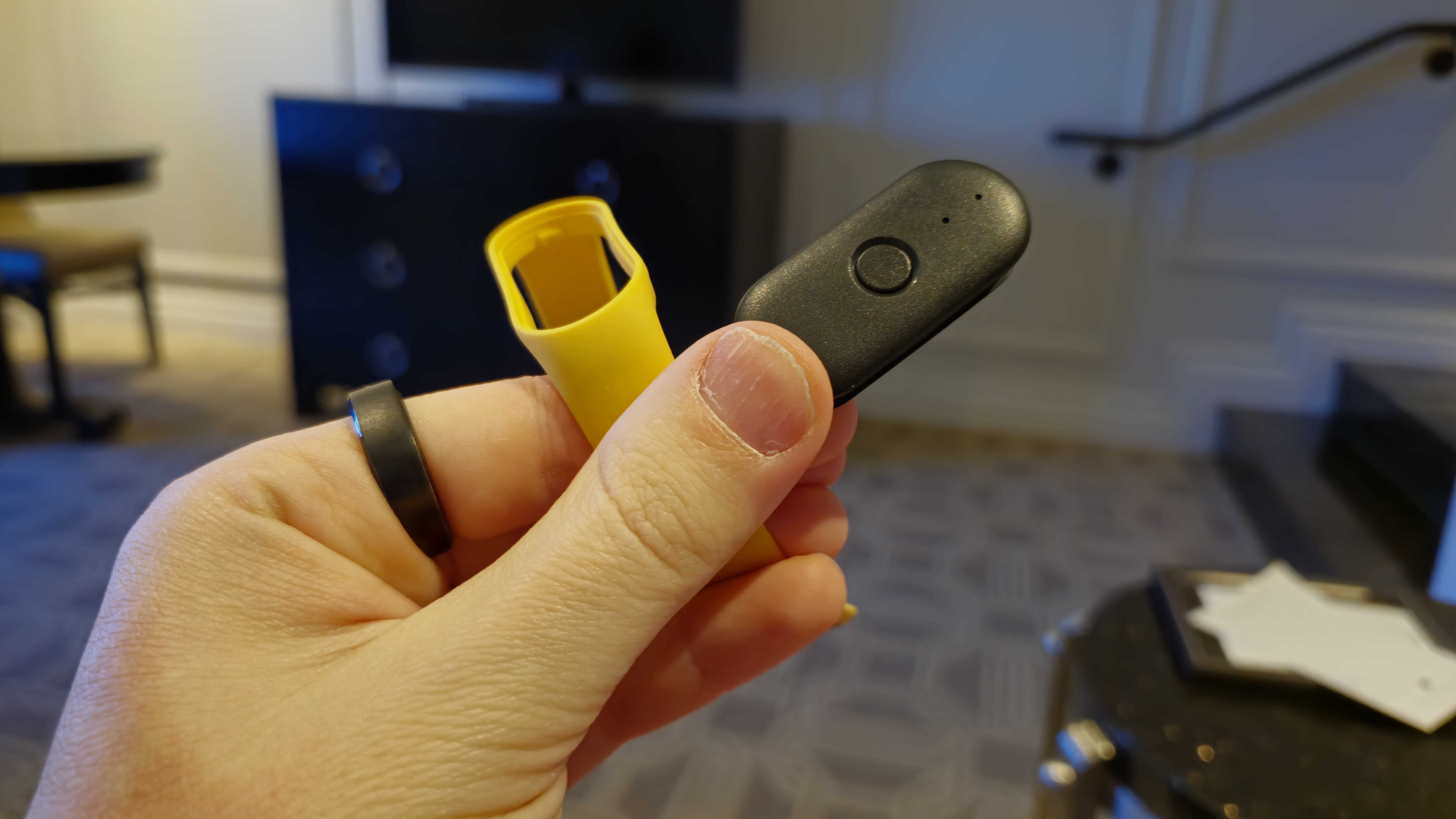The Humane AI pin made a big splash around CES 2024, but the resulting disappointment meant that people have taken a frostier approach to dedicated AI wearables at this year’s show. Don’t get me wrong, you can’t escape AI at CES 2025, but usually, it comes as an upgrade to a device’s feature set rather than AI being the only feature. However, there was one AI wearable at the show, and I got to see it in action – though I can’t yet decide if I love it or hate it.
I’m talking about Bee, a small pendant you can wear as a bracelet in a clip, which syncs with an app on your phone to create detailed summaries of your day’s conversations. You can then use these notes to remember the conclusion of work meetings or recollect the story friends told you over dinner. Bee can be used to automate to-do lists and offer valuable reflections on the day’s events.
The Bee app can even perform basic on-device functions with your phone. If a close friend messages you on WhatsApp about where to meet for dinner, you can speak into the pendant to instruct the AI to find a dinner spot to suit your preferences.
But beyond working for you, the team wanted me to understand the bee is designed to understand you. Over time, it will learn what insights, tasks, and people are most important to you and prioritize its alerts and aid based on your preferences in a bid to make itself a more useful and bespoke assistant to each user.
It was a short but sweet demo of the Bee experience, and a part of me thinks Bee sounds somewhat useful – especially as a busy journalist with days full of meetings at shows like CES. But to understand Bee properly – and assess how useful it is – I’ll need to use it for five days instead of just five minutes, though I’m also admittedly not sure I want to.

Personal privacy problems
Privacy is at the root of my concerns. Do I really want a little cham recording me all day, every day?
Bee is aware of these concerns and has already added useful privacy-focused features – with plans to add more – to protect user’s data. For a start, Bee doesn’t keep any audio recordings; it processes the audio in real time and then deletes it according to Bee’s creators. You can also manually mute Bee using a button on the pendant, and you can set it so that Bee doesn’t make notes about certain topics of conversation.
The team also discussed other features they’re investigating based on user feedback – such as possibly adding geo-blockers so you can set Bee not to make notes when you’re in certain places (such as at the office).
These concerns are true with all wearables and devices to an extent, but even though my smartphone knows more about me than I do probably, there’s still something that feels different about wearing an AI pendant whose sole purpose is to always be listening.
As I’ve said with other tech before however, I’ll reserve judgment until I’ve tested Bee properly. Perhaps I’ll discover my concerns are entirely misplaced, and AI assistants like it are the future we should all embrace.
We’re covering all of the latest CES news from the show as it happens. Stick with us for the big stories on everything from 8K TVs and foldable displays to new phones, laptops, smart home gadgets, and the latest in AI.
And don’t forget to follow us on TikTok for the latest from the CES show floor!

